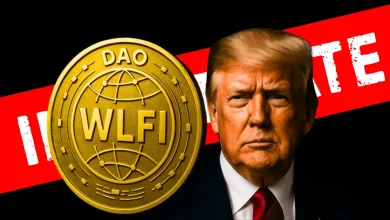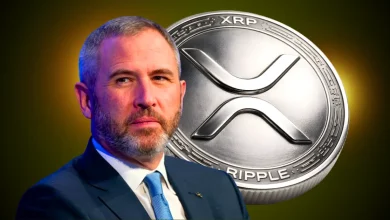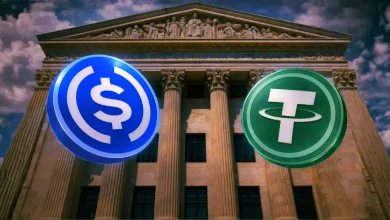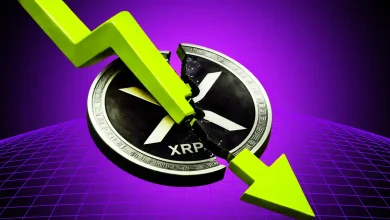
ChatGPT said: An Argentine judge has frozen assets linked to the LIBRA memecoin scheme promoted by President Javier Milei.
The order targets U.S. businessman Hayden Davis, accused of moving $507,500 via Bitget minutes after Milei’s post.
Prosecutors suspect coordinated fund flows and fraud tied to the LIBRA token promotion.
A selfie and a sudden money transfer had thrown Argentina’s president into the center of a crypto storm.
Within 42 minutes of President Javier Milei’s viral post with U.S. businessman Hayden Davis, half a million dollars moved through Bitget and investigators say that moment may have exposed one of the country’s biggest memecoin scams.
Here’s the latest update.
Judge Freezes Assets in LIBRA Fraud Case
According to sources, Federal Judge Marcelo Giorgi has ordered a “prohibición de innovación” – a freeze on assets tied to the LIBRA memecoin, which was publicly promoted by President Milei earlier this year. The order covers Davis and two crypto operators, Argentine Orlando Mellino and Colombian Favio Rodriguez, whose wallets showed suspicious activity.
Prosecutor Eduardo Taino requested the measure, backed by reports from Argentina’s financial investigation units. They warned that hundreds of investors may have been defrauded of $100-$120 million, urging the court to preserve any assets that could be linked to the alleged scam.
Judge Giorgi approved the request, saying the freeze was necessary to prevent the suspects from moving or hiding funds before the case ends.
The decision was also sent to Argentina’s National Securities Commission (CNV) to ensure the order extends to all crypto platforms operating in the country.
The $507,500 Transfer That Raised Eyebrows
Investigators are focusing on a specific moment that connected the president’s online post to real-world fund flows. On January 30, Milei shared a selfie with Davis, calling him an advisor on blockchain and AI.

Just 42 minutes later, Davis transferred $507,500 through Bitget, according to prosecutors.
That timing, combined with on-chain tracking from TRM Labs and Chainalysis, became a key piece of the investigation. Analysts traced multimillion-dollar withdrawals from LIBRA’s liquidity pools to several exchanges, including Bitget, Gate.io, and Circle.
TRM Labs estimated around $90 million was moved through consolidation addresses. Reuters wrote “the on-chain behavior suggests that these addresses are closely related to the LIBRA creator team.”
- Also Read :
- Brazil Crypto Regulation Tightens: Central Bank to Oversee All Digital Asset Firms by 2026
- ,
Political Fallout Deepens
LIBRA’s token launch on Solana in February briefly soared after Milei’s social media post and then crashed within hours. The president deleted his post soon after and later said, “I wasn’t informed of the project’s details, and after learning about them I decided not to continue promoting it.”

But leaked text messages from Davis only made things worse.
In one, he bragged, “I send money to his sister and he signs what I say and does what I want. Crazy.” The exchange added fuel to accusations that LIBRA’s creators used Milei’s name and image to pump the token before pulling investor funds.
For many in Argentina’s crypto community, the LIBRA scandal was huge and still cited as a lesson. What was as a meme-driven project with presidential visibility now stands accused of draining millions from everyday investors.
Never Miss a Beat in the Crypto World!
Stay ahead with breaking news, expert analysis, and real-time updates on the latest trends in Bitcoin, altcoins, DeFi, NFTs, and more.
FAQs
The LIBRA scandal involves a memecoin linked to a $100M-$120M alleged fraud, promoted online by President Milei before investor losses emerged.
Milei shared a selfie with a crypto advisor, unintentionally boosting LIBRA, though he later distanced himself from the project.
Investigators focused on a $507,500 transfer shortly after Milei’s post and suspicious on-chain movements tied to LIBRA’s wallets.
U.S. businessman Hayden Davis, Argentine Orlando Mellino, and Colombian Favio Rodriguez face scrutiny over funds linked to the alleged scam.
A federal judge froze assets of the suspects to prevent fund movement, and Argentina’s securities commission is monitoring all crypto platforms.
Trust with CoinPedia:
CoinPedia has been delivering accurate and timely cryptocurrency and blockchain updates since 2017. All content is created by our expert panel of analysts and journalists, following strict Editorial Guidelines based on E-E-A-T (Experience, Expertise, Authoritativeness, Trustworthiness). Every article is fact-checked against reputable sources to ensure accuracy, transparency, and reliability. Our review policy guarantees unbiased evaluations when recommending exchanges, platforms, or tools. We strive to provide timely updates about everything crypto & blockchain, right from startups to industry majors.
Investment Disclaimer:
All opinions and insights shared represent the author's own views on current market conditions. Please do your own research before making investment decisions. Neither the writer nor the publication assumes responsibility for your financial choices.
Sponsored and Advertisements:
Sponsored content and affiliate links may appear on our site. Advertisements are marked clearly, and our editorial content remains entirely independent from our ad partners.






